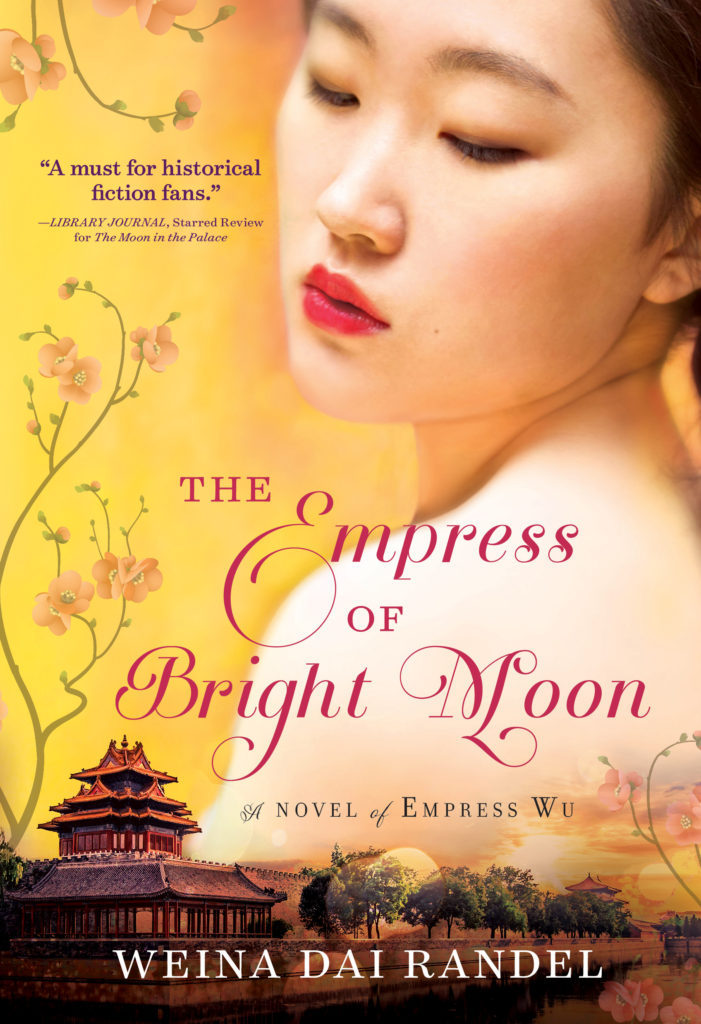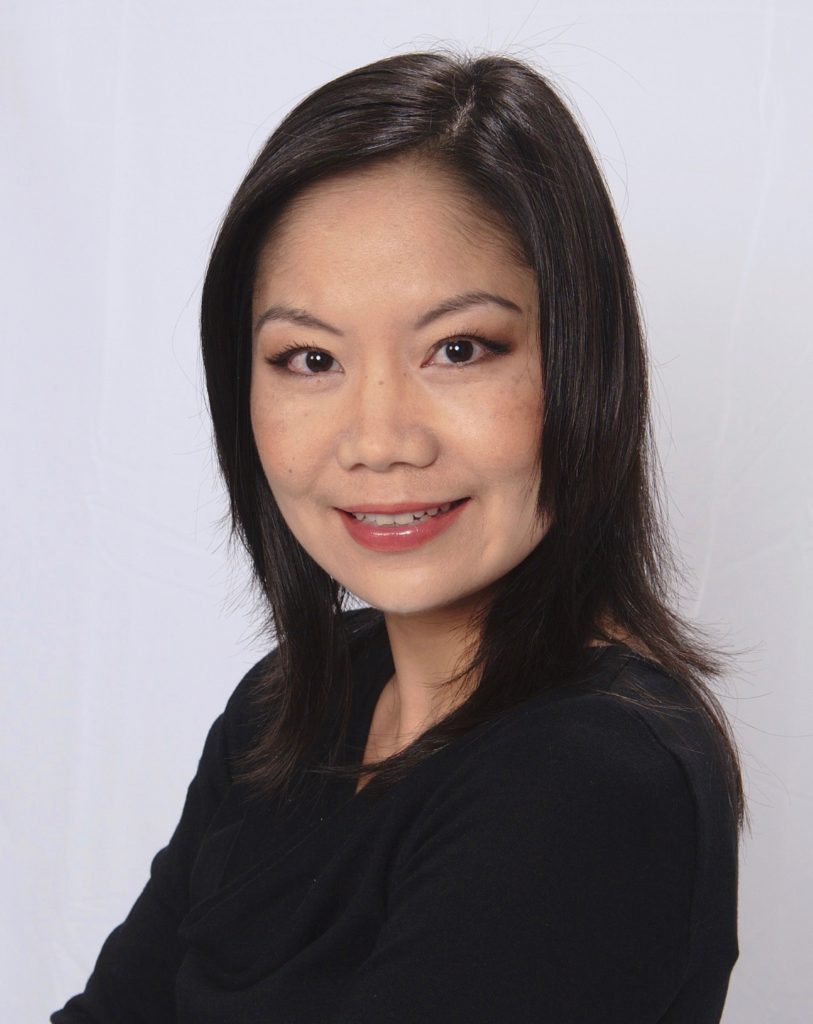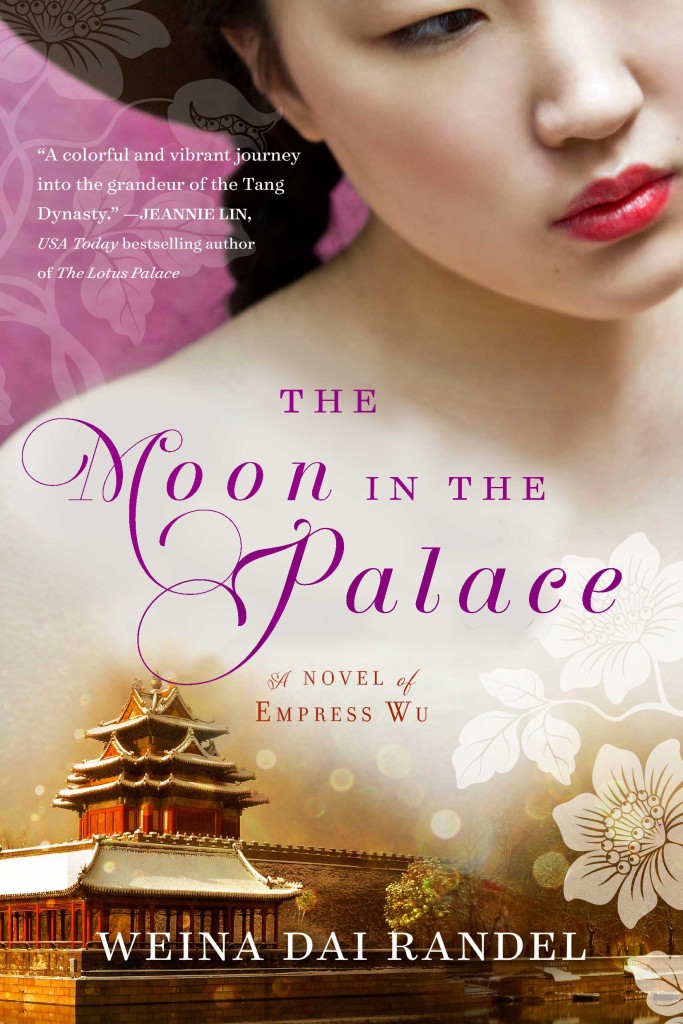Battle of the Bloggers! Empress Of Bright Moon Ancient China Trivia Quiz!
Welcome to the Battle of the Bloggers!

In today’s episode, blogger Autumn Ashbough of West Dates East faces off with me for some Chinese Tang Dynasty Trivia. Who will reign supreme? Mary, a girl who speaks Chinese but knows next to nothing about ancient Chinese history; or Autumn, the witty all-knowing blogger?

Weina Randel will be hosting today’s game. Randel spent six years researching China’s only female Emperor. She’s got some brutal questions for us about both her books (The Moon in the Palace and The Empress of Bright Moon), as well as Chinese history and culture in general.
Who will win? The woman who actually speaks Mandarin and lived in China, or the woman who took one class on Chinese history over a decade ago in college?
Let’s find out. Here’s an only slightly edited version of our game show, conducted primarily via Skype:
WEINA: Ladies, thank you so much for agreeing to do this. I have seven questions for each of you, plus a tie-breaker if necessary.
AUTUMN (snorts): It’s not going to be necessary. Mary is going to crush me. Especially if you’re dinging us on pronunciation. I don’t even know what tones ARE.
WEINA: I’ll give you a break on pronunciation.
AUTUMN: Whoo-hoo! You’re going DOWN, Mary!
WEINA: First question, to Mary. Mary, the ancient Tang China was a highly stratified, hierarchical society with classes and distinctions. The emperor used the dress’ color to mark the status and distinction. For example: the highest-ranking aristocrats wore the color purple, middle-ranking red and green, and lowest-ranking blue, and the commoners and scholars white.
AUTUMN: Oh, crap. I don’t remember ANYTHING about this in C.P. Fitzgerald’s Short Cultural History of China.
WEINA: Ah-hem. The question is to Mary. True or false: the butchers and the merchants, considered one of the lower class, must wear the color black.
MARY: True!
WEINA: True! A point for Mary! Yes, that law was made during the Sui Dynasty.
AUTUMN: Clearly a lucky guess.
WEINA: Now, Autumn. Emperor Taizong came from a military family with strong women. It was said his aunt, a princess, was a superb swordswoman and an archer, who helped her father, Emperor Gaozu, lead cavalry and crushed the Sui Armies during their rebellion. True or false.
AUTUMN: Well, maybe the character of Pheasant’s sister in the Empress of Bright Moon is based on Emperor Taizong’s aunt. I’m gonna go with true. But mainly because I want it to be true.
WEINA: True!
AUTUMN: I have a point!
WEINA: Mary — beauty for women in the Tang Dynasty was not only an asset –
AUTUMN: Wait! I want the beauty question. Why didn’t I get the beauty question?!
WEINA: Minus one for Autumn for interrupting.
AUTUMN: Goodbye, point.
WEINA: Mary, beauty was also insurance for a better and comfortable life. Naturally, women in the Tang Dynasty took great lengths to obtain beauty – a fair complexion that bordered being pale. True or false: one way women achieved a pale complexion was to smear the face with the blood of a black-boned, silky bird on the seventh day of the seventh moon.
MARY: Oh, yeah, I totally know this one.
AUTUMN: Really?
MARY: Yeah. Killed some black birds myself.
AUTUMN: NO!
MARY: Of course no. But this is really specific, so I think it has to be true, because otherwise Weina’s just too good at making stuff up.
WEINA: Yes! It is true! Another point for Mary. Now, Autumn, it is said that Chinese people considered boiled hump of Bactrian camel as a delicacy, and fat marmots savory. True or false: To please the emperors, people in the north sent bamboo rats, the animals fed on bamboo roots and were also the size of rabbits, to the palace. To eat.
AUTUMN (whining): Why didn’t you give THIS one to Mary? I cannot imagine anyone likes rats, but I also cannot imagine people willingly eating chicken feet and my husband’s family does it all the time, but, uh…I’m gonna say false, because no one wants to eat rats.
MARY: I’m with you on this one, Autumn.
WEINA: Wrong. It’s true. People in China also ate cats, and in the Tang Dynasty, Chinese people ate all sorts of unusual animals.
AUTUMN: ARGH! We suck.
MARY: Speak for yourself. I’m winning! But I am surprised. I never saw anyone in China eat rats.
AUTUMN: But they do eat pigeons, and those are really just rats with wings, right?
WEINA: Back to Mary. During one major festival in the Tang Dynasty, the emperor lifted the curfew of the city for three days, during which citizens could freely stroll the streets and mingle with people of different classes. True or false: this time was called the festival of light and the festival happened on the New Year.
MARY: I’m gonna say false cuz I don’t remember Chinese New Year being referred to as “the Festival of Light.”
WEINA: You are correct! It’s actually called the Lantern Festival. Autumn, in ancient China, the emperors trained the troops by encouraging people to wrestle. The exercise is called “horn butting,” and later called “paired shoving,” similar to Japanese sumo. True or false: the sport existed in China as early as third century B.C.
AUTUMN: Uuuuuuhhhhh, I don’t remember reading anything about this. So I’m gonna say false and hope my man C.P. doesn’t let me down. AGAIN.
WEINA: Wrong! It’s true! I discovered this during my research.
AUTUMN: Oh, great, I have one point and Mary has three! C.P., you have much to answer for.
WEINA: Mary, Chinese people were very superstitious during the Tang Dynasty.
AUTUMN: Clearly, much has changed in the intervening centuries.
WEINA: As I was saying to Mary… True or false: They were so superstitious that they liked twins, but disliked triplets and quadruplets.
MARY: Four is an unlucky number in China –
AUTUMN: I’ll say!
MARY: And in Japan, three was bad because it is “not harmonious” – there’s no pairs there. So I’m gonna say true.
WEINA: You’re right! Twins were fine, but triplets were considered abnormal and quadruplets were a very bad omen suggesting an over-abundance of yin and lack of yang.
AUTUMN: Yin is the female, of course, right?
WEINA and MARY: Yes.
AUTUMN: Figures. Stupid neo-Confucian sexists.
WEINA: Autumn. True or false: to be considered successful, the young men of the Tang Dynasty had the goal of acquiring a government post, civil or military, by taking examinations given by the government.
AUTUMN: TRUE! TRUE! Exams are all you ever hear about in Chinese History class!
WEINA: Yes. They were required to assemble in the capital on the eleventh moon, and the exam would take place the next spring.
AUTUMN: Yes! Two points! Epic comeback starts right here!
WEINA: Mary, scholars in the Tang Dynasty often used seals on their official papers and greeting cards. True or false: because of this, they developed the technique of multiple stamping, an important precursor of the invention of printing in the Tang Dynasty.
MARY: I know the Chinese invented printing, so I’m gonna go with true. And they did have a ton of seals and stamps.
WEINA: False.
MARY: Damn it!
WEINA: It was actually the silk dyers. They applied their tints to threads or the whole cloth and stamped it on the fabric. The process would eventually require them to use desired design on a block of wood and swap the blocks to create the design.
WEINA: Now, Autumn — in the novel The Moon in the Palace, Pheasant gave Mei an expensive gift to show his love and devotion. True or false: the gift was a horse carved out of jade.
AUTUMN: Aw, crap. I was concentrating on Empress of Bright Moon. I know Pheasant gave Mei the jade piece that belonged to his mother…so sure, it can be a horse!
WEINA: No. It was a jade silkworm.
AUTUMN: YOU DIDN”T SAY THERE WOULD BE TRICK QUESTIONS!

WEINA: Mary, in The Moon in the Palace, Mei made a mortuary tablet to honor her father on a special day when many people in China showed their respect to their ancestors. True or false: the special day was called Qingming Festival and it occurred on the seventh day of the seventh month.
MARY: Yes – that’s the tomb sweeping festival.
WEINA: False. Qingming festival was a solar celebration set on April 5th.
MARY: Oh, man! I need to learn my moon calendar better.
AUTUMN: Hahahaha, she got you with a trick question, too. We’re tied for sucking.
WEINA: True or false: in the novel The Empress of Bright Moon, Mei managed to escape the fate of exile. She hid in a Buddhist Monastery for three years until Emperor Gaozong sought her out.
AUTUMN: Ha, I see you trying to trick me again, but no! Mei was exiled TO a Buddhist Monastery for three years until she snuck away. So false!
WEINA: You are correct. Mary, in the novel The Empress of Bright Moon, Mei quoted Zhuang Tzu’s classic story of Zhuang Zhou’s Dream to debate with the Regent, in order to impress him that she was well versed in the philosophy. True or false?
MARY: I’m gonna say true!
WEINA: False! Wrong Zhou – Mei quoted Lao Tzu.
MARY: GAH! Trickery!
WEINA: Autumn, in the novel The Empress of Bright Moon, Mei had a favorite pet, who comforted her greatly in her loneliness. True or false: the pet was called Lion, and it was a cat.
AUTUMN: FALSE! It was a mastiff and he was awesome and you killed him off and I am still mad about that!
WEINA: You are correct, but shhh! Spoilers, Autumn!
AUTUMN: He was a GREAT character, and he even had a bad leg, but he didn’t let that stop him. And if killing him wasn’t bad enough, then you–
WEINA: And that’s it for the questions today! Thank you for playing, ladies!
Weina signs off Skype. Mary and Autumn stare at each other.
MARY: You just couldn’t let the dog thing go.
AUTUMN: Did you not read my last post? About my dog?
MARY: So…who won? I have four points.
AUTUMN: Me, too.
MARY: Was that before or after Weina dinged you a point for interrupting?
AUTUMN: Mary wins! Congrats to Mary! Yay!
*****************
But actually, we both won, because we were fortunate enough to get advanced copies of Randel’s books. Which we both enjoyed, despite the whole dog issue.
If you’re interested in learning more about Empress Wu, check out Randel’s incredibly well-researched historical fiction: The Moon in the Palace, and the Empress of Bright Moon. Despite the six years of research, Randel’s books are very readable and engrossing. Life in the palace is filled with luxury, but it is also fraught with intrigue and danger.
12 thoughts on “Battle of the Bloggers! Empress Of Bright Moon Ancient China Trivia Quiz!”
ROTFLMAO once again over your comment about using black bird blood for your complexion.
Also, you must be a cat person because the dog totally didn’t bother you. Thanks for playing the game!
Haha the dog thing did bother me. When it happened in the book I thought: ……NO! DON’T EAT IT! I KNOW WHERE IT CAME FROM NOOOOOOOOO~~~~~~~!!!
Also while in China I did see dog on the menu, and I really thought about ordering it just to say I was open-minded, but then I said… no! I love doggies too much. And kitties. I did eat pigeon though (so does that mean I ate a rat? aha).
The only animal/mammal I felt terrible about consuming was whale. My host-grandfather gave me a huge slab of whale meat for my birthday and I couldn’t say no. I only had a little bit but it was terrible. Sorry whales! 🙁
Yeah, I don’t think I could eat dog or cat unless I was starving. And I’m pretty sure I couldn’t eat any animal I knew. Unless it was an asshole.
You had so much fun! And did you get to see Autumn’s face? Is she a real person? 😛
Hahaha no Autumn is still an enigma.. I only heard her voice! But yes, she is a real person, and contrary to Richard’s beliefs, she is a woman and not a man 😛
We had a lot of fun on the phone, it was a brilliant idea on her part! Thanks for comment 🙂
Cute idea. Looks like you all had a lot of fun and learned a lot along the way 🙂 cheers!
Thaaaaaaanks 😀 It was fun. It was nice to actually TALK to a fellow blogger on the phone! First time for me.
Cool. I was wondering how you all did it! 😀
So much fun! What a fabulous idea! And you guys did an awesome job. I learned a lot myself!
Thanks Jocelyn! I learned a lot too, actually, haha.